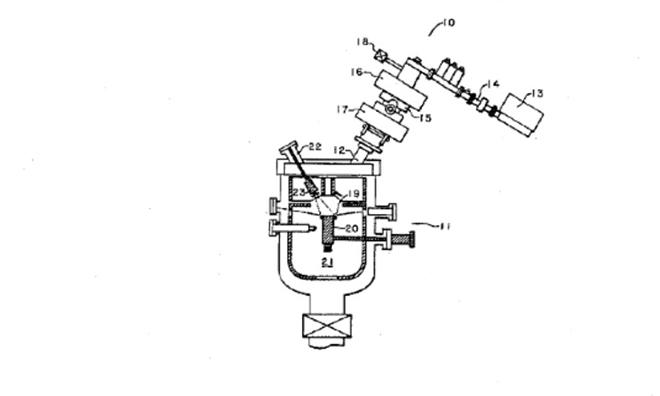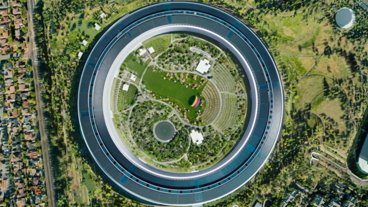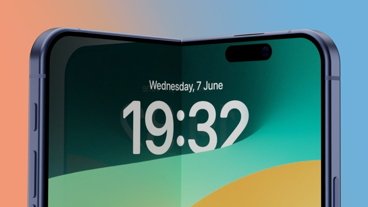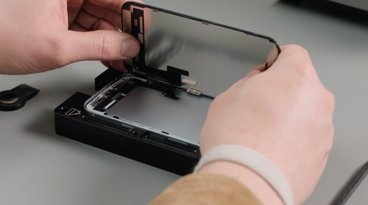Apple's iPhone is at the center of another patent dispute, as the Trustees of Boston University have filed suit against the Cupertino company, alleging that not only the iPhone 5 but also the iPad and MacBook Air infringe on a BU professor's patent.
At issue in the suit is U.S. Patent No. 5,686,738, covering a method of "highly insulating monocrystalline gallium nitride thin films." Theodor D. Moustakas, Ph.D., a BU professor of Electrical and Computer Engineering, is listed as the inventor of the '738 patent, and the University as the assignee owns the right, title, and interest to the patent.
The process in the patent is related to the production of semiconductor devices using silicon, sapphire, gallium aresenide, magnesium oxide, zinc oxide, and silicon carbide. Gallium nitride thin films, a product of the process, are desirable in electronics due to their being a source of inexpensive and compact solid-state blue lasers.
The plaintiffs claim that Apple's iPhone 5, iPad, and MacBook Air "include a gallium nitride thin film semiconductor device" of the type described in the '738 patent. The suit alleges that Apple "has infringed, and continues to infringe, one or more claims of the '738 patent."
BU's case would seem to be bolstered by the fact that at least one other company pays a licensing fee to use the component in question, the Boston Herald reported on Wednesday. The University will likely raise that issue in court.
Boston University has also filed identical claims against eight other smaller manufacturers, as well as claims against both Samsung and Amazon in the past year. Observers note that the payout from the Apple suit could top out around $75 million if the University can demonstrate that Moustakas intended to make a business out of his invention.
The University's suit calls for Apple to detail all "gains, profits, and advantages" stemming from its use of the '738 patent, as well as awarded damages to compensate for the infringement. The suit also calls for the court to permanently enjoin Apple from making and selling any of the infringing products.
In its filing, Boston University asks the court for a trial by jury on all matters suitable for trial by jury. The case, Civil Action No. 1:13-cv-11575, was filed on July 2 in the U.S. District Court for the District of Massachusetts. F. Dennis Saylor is the presiding judge.
 Kevin Bostic
Kevin Bostic

-m.jpg)






 Oliver Haslam
Oliver Haslam
 Thomas Sibilly
Thomas Sibilly
 Marko Zivkovic
Marko Zivkovic

 Wesley Hilliard
Wesley Hilliard
 Malcolm Owen
Malcolm Owen
 Andrew Orr
Andrew Orr



-m.jpg)






53 Comments
damn I am sick of patent suits.
If they aren't using the patent personally, then the patent should be public domain.
Is this the same type of professors that were listed to courses I took, but never showed up because they were too busy writing patents, working on projects, writing books, or whatever and the good money I paid for was for a course delivered by some professor's teachers aide?!
This one seems serious. An institution like BU -- and its Board of Trustees -- would not remotely take something like this on as a trolling exercise. If patents have been infringed, Apple should pay, and move on. $75M is chump change (for Apple).
[quote name="Rot'nApple" url="/t/158352/boston-university-patent-suit-over-apples-iphone-5-could-net-75m#post_2356794"]Is this the same type of professors that were listed to courses I took, but never showed up because they were too busy writing patents, working on projects, writing books, or whatever and the good money I paid for was for a course delivered by some professor's teachers aide?! [/quote] This would not happen in any of the universities with which I have been associated. Where did you go to school?